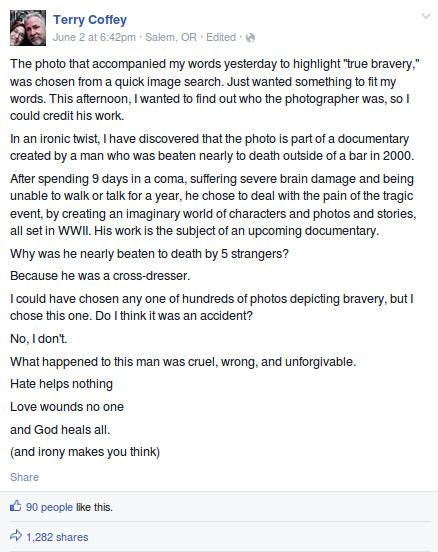One of my very favorite descriptions of therapy is that it’s about being with a person in such a way that they can be exactly who they are. This is also a fundamental part of the feminist movement, and all equal rights movements- differences are to be honored through equal rights and equal treatment. It’s a very simple concept, but it’s difficult to put into practice when you’re dealing with unconscious beliefs and motivations. These things guide as like a trance. And it is the realm of the unconscious where change must be exacted if we are to see it on a global scale. The practice of knowing yourself well enough to understand when you’re being guided by these unconscious forces is tremendously helping for staying mindful and present. Through the observation of present behavior, we are able to understand what the past meant to us.
When it comes to feminism, understanding the past occurs on a very grand scale. We must look at the thousands of years of cultural perspectives on gender to understand history and what led us to this point. This is why good education is paramount. It’s why it drives us feminists crazy that history lessons have such a heavily heteronormative, cisnormative and masculine bent. Worse, we too often fail to educate our children about how beliefs systems shape behavior and social constructions. Because it’s not just having information that exacts change.
This shows up in the therapeutic process all the time, and it’s why one can fairly quickly exhaust the benefits of the talk therapy modality. Insight does not always exact change. It gives us the why, but not the how. It is in the mastering of mindfulness and presence through much practice that we are able to really get our needs met. Only with this skill can we effect larger scale changes.
Institutional sexism (or any -ism) is a macro scale version of this unconscious process. The continue inequality of pay, for instance. is less of a malicious phenomenon than an unconscious one. For many historical cultural reasons, women are still often seen as inferior. So when it comes time to decide where a woman ought to fall on a pay scale range compared to a male counterpart. it’s the underlying beliefs that play the role that ends in bias. Tina Fey and Robert Carlock capture this beautifully with their comedic genius in The Unbreakable Kimmy Schmidt when Carol Kane’s character Lillian says, “Ah change the channel; I can’t get the news from a woman.” This strikes us as absurd, because it is! As a viewer, you can feel that this isn’t something she’s though through. It’s unintentional. It’s unconscious. It’s a spot on example of internalized sexism.
Internalized oppression is when a person has negative beliefs about oneself which result from the experience of oppression. This can pop up all over the place, because it’s inadvertent. And this is where we must explore ourselves and encourage others to do the same. Because activism, as with therapy, is impossible if we focus on patching up all the symptoms of the problem. If Lillian is to change this belief about a woman’s ability to provide the news, it will be necessary for her to explore her beliefs about the female gender. If we over-focus on the news issue, her beliefs will pop up somewhere else, perhaps even somewhere very similar. But through a therapeutic process she would be able to look at her own personal history to understand the influences leading to this belief, to process when she’s been a victim of it herself, and to be mindful of when and how she’s unnecessarily limited herself and others through the behavior resulting from this belief.
Institutional -isms are macrocosms of internalized -isms.
The skills one learns through psychotherapy can then be extended to others. Fostering the process of therapy as a society would cause a whole lotta healing on both the personal and, eventually, the societal level. I’m lucky enough to live in a city where most people welcome a reference to therapy. I can say, “I’ve been exploring that with my therapist,” and get an, “Oh, that’s great,” instead of a, “What do you need therapy for?” I love when people say to me, “I don’t need therapy, but…” because no matter how they finish their sentence, I get to say, “Actually, it sounds like you’d really like therapy!” Those sorts of negative reactions are indicative of underlying negative beliefs about therapy. And lemme tell ya, negative beliefs about therapy are misunderstandings of what it actually is. Negative experiences as a client certainly happen, but that doesn’t mean that all of therapy is painful or unhelpful. We can change these misconceptions by inspiring others through self-disclosure, normalizing, and through demonstrating what we’ve learned. The more people who are skillful at understanding, accepting, and expressing themselves will mean way less baloney interactions, personal and macro scale.
Mental health is a social contagion. Just look at powerhouse of openness and insight Amy Poehler. Her message “good for her, not for me,” encourages people to disengage from comparing and making assumptions, and it is a fabulous example of this. This one simple sentence demonstrates self-knowledge as well as openness to and acceptance of others’ differences. This is what comes from the therapy process. You learn how to reach understanding, so you can practice with yourself as well as with others. Engaging in the work of psychotherapy is a revolutionary act.
Big ol’ shout outs to the likes of HeForShe, Jade Rivera, Jenipher Lyn, and SmartGirls for engaging in this kind of micro-level activism. I triple dog dare you to watch one of Poehler’s Ask Amy videos and not feel better about yourself, others, and the future of our world.

